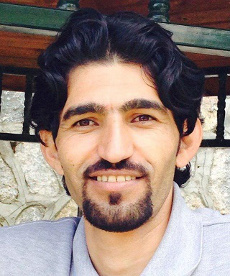Death Penalty Sentencing hits Poor, Marginalized Hardest: Indian Report
Death penalty sentences handed down in India’s judicial system overwhelmingly affect the country’s poor and marginalized, according to a recent report.
 India has executed four individuals in the past fifteen years; Indian courts have handed down at least 1,790 death sentences in the same period. In the summer of 2013, a team of law students at India’s National Law University set out to better understand the effect of their country’s death penalty policy. Through research and interviews with local prisons and officials conducted over the next two years they were able to identify 385 prisoners on death row, 373 of whom they were able to contact directly. Information compiled from these contacts paints a picture of a policy which disproportionately affects the poor and marginalized:
India has executed four individuals in the past fifteen years; Indian courts have handed down at least 1,790 death sentences in the same period. In the summer of 2013, a team of law students at India’s National Law University set out to better understand the effect of their country’s death penalty policy. Through research and interviews with local prisons and officials conducted over the next two years they were able to identify 385 prisoners on death row, 373 of whom they were able to contact directly. Information compiled from these contacts paints a picture of a policy which disproportionately affects the poor and marginalized:
-63.1% were their families’ sole or primary earners.
-At least 74.1% were deemed “economically vulnerable” (working as casual manual labors, marginal and small agricultural cultivators, students, low-paying public/private salaried employees, in small own-account enterprises, or unemployed.)
-At least 61.6% did not complete high school or have no formal education whatsoever.
-At least 20.6% were members of religious minorities.
The report raises additional questions about the quality of legal counsel available to defendants in capital trials. Researchers described a “complete lack of engagement” between attorneys and clients arising from families’ inability to pay. Of 258 death row prisoners questioned about their legal representation, 77% reported that lawyers had not met with them outside of court. They described case of lawyers threatening not to appear at trial without payment, and irregular and inadequate communication which left prisoners themselves totally ignorant of legal decisions in which their lives hung in the balance.
The Death Penalty Research Project in India demonstrates the power ordinary concerned citizens have in shaping discussions around criminal law, provided a transparent judicial system which respects the rule of law. What might a similar project turn up in Iran, if authorities would cooperate and share information as freely as their Indian counterparts? If civil society were respected, what might Iranian law students uncover about their own country’s death row – far more crowded and deadly than India’s?
#WhyExecute?
(Sources: The Indian Express, New York Times)





 My Interrogator Said: You Are An Ass, And Asses Do Not Merit Human Rights
My Interrogator Said: You Are An Ass, And Asses Do Not Merit Human Rights